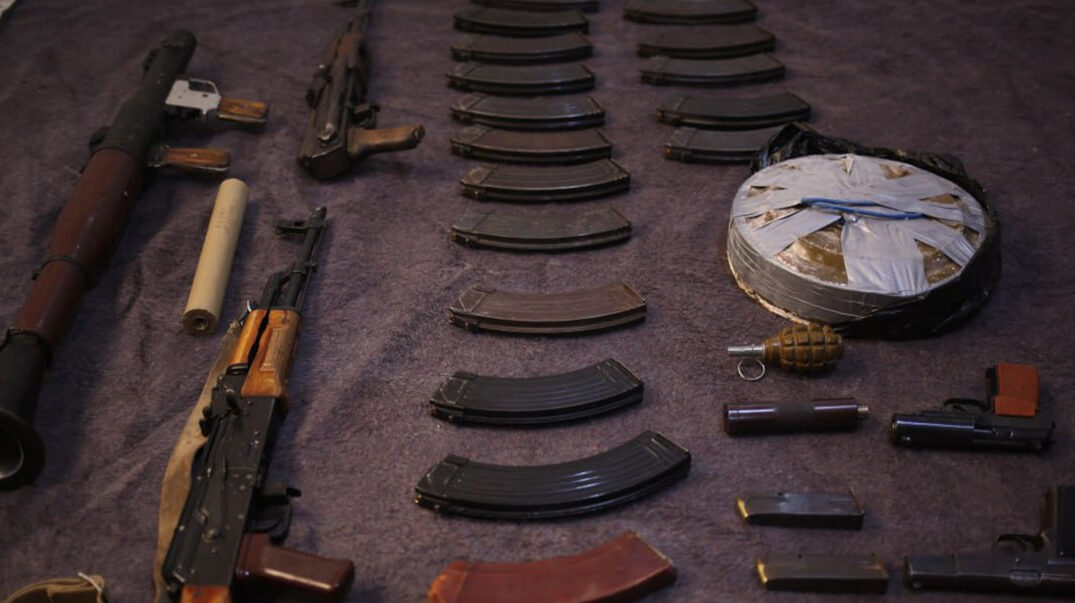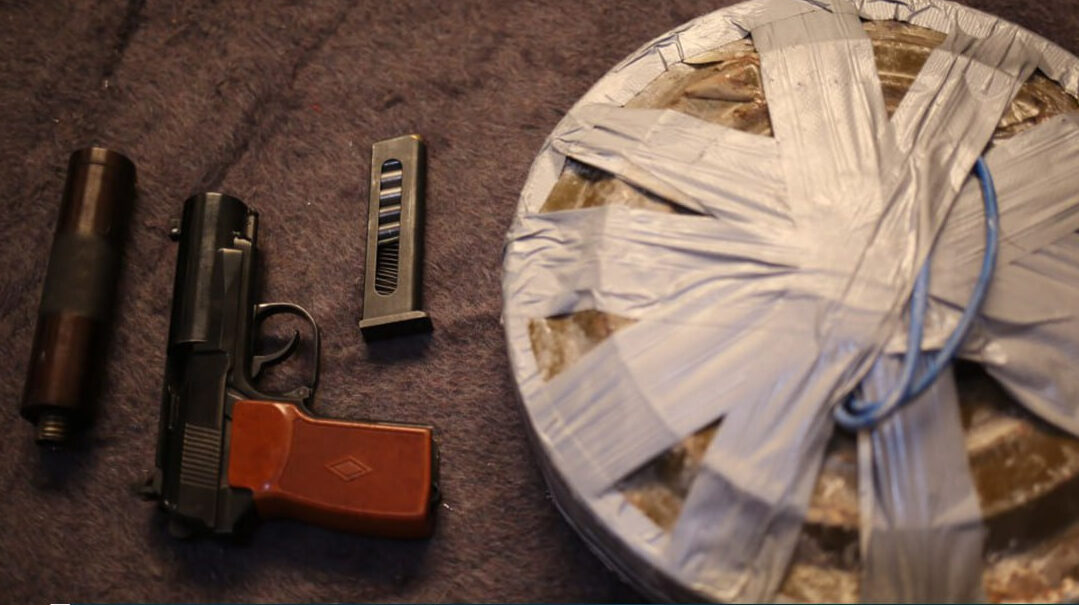Al-Qaeda-affiliated Hay’at Tahrir al-Sham (HTS) claimed on September 22 that it had apprehended an “assassination cell” of the Syrian intelligence in the Greater Idlib region.
In a brief statement, the security service of the terrorist group, known as the General Security, said that the cell was apprehended in Idlib city. Two handguns with a silencer, two assault rifles, a rocket-propelled grenade launcher, a hand grenade and an anti-tank mine were found with the alleged assassination cell.
HTS is the de-facto ruler of Greater Idlib. The Syrian intelligence and several foreign secret services are known to be heavily active in the region, which is known to be a safe haven for wanted terrorists.
In July, HTS announced that its security service had uncovered a large spying ring. The terrorist group attempted to play down the security breach by claiming that the network was mainly made up of young new recruits.
However,Jihadi sources said that more than 200 members from the group’s military wing, security service and political body, including senior leaders, were arrested. The sources said that the spies worked for the Russian, Syrian and the U.S. intelligence.
In one case, a spy leaked the entire database of military identification cards issued by the group to Syrian intelligence officers, according to the sources
The spying ring was reportedly uncovered with technical help from Turkey, who maintains a large military presence in Greater Idlib to enforce a ceasefire agreed upon with Russia.
Later in August, HTS acknowledged that it had arrested Abu Maria al-Qahtani, one of its co-founders and senior leaders, over links to a spying scandal. The group didn’t identify the side its second-in-command was communicating with. However, Jihadi sources alleged that al-Qahtani was spying for the U.S.
HTS executed many people in Greater Idlib after accusing them of spying over the last few years. No credible evidence was ever presented by the group, however.
Faced with serious security issues, the terrorist group is now apparently relying on intimidation to keep its militants and commanders in line.
MORE ON THIS TOPIC:






